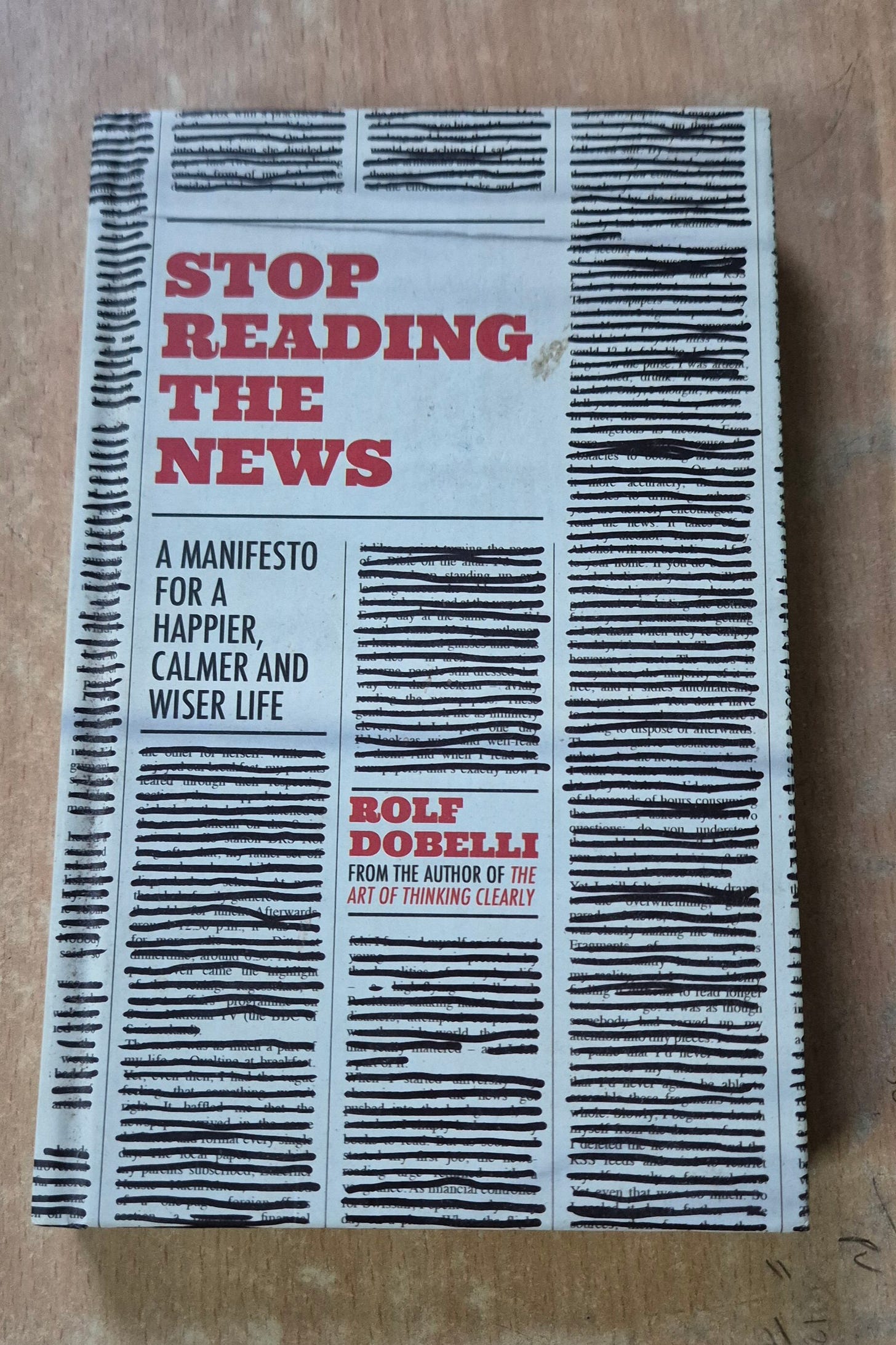Why you can scroll reels but can't read anymore
In today's digital world, we have lost the ability to read long-form.
My dad, ironically, gifted me this book many years ago as a must-read.
So what is the irony you may ask?
He is one of the most voracious readers I know—probably the most, in fact.
But over time, with reels and shorts, he’s mentioned that he can’t read for long sittings anymore; his attention span has dwindled.
So, what relevance does this book have today?
HUGE RELEVANCE.
The more you scroll on social media and flick through information at a rapid pace, the more you encourage the formation of neuronal circuits adapted to the flood of information and multitasking.
At the same time, the circuits in your brain that are necessary for absorbing reading and deep thought will shrink.
Notice that even the most passionate bookworms or studious students you know may struggle to read longer articles or books. After four or five pages, their attention dissipates, and they become restless.
My own attention span has worsened, so I make sure to complete a lot of my deep, focused reading and writing in the early hours of the morning. When work starts, it’s already a dynamic environment where I’m often juggling multiple tasks, combined with the digital distraction of scrolling my phone whenever I have a little free time.
The physical structure of our brains has possibly changed due to this doom-scrolling era.
Michael Merzenich of the University of California in San Francisco puts it like this:
“We are training our brains to pay attention to crap.”
Merzenich's research has shown that when we frequently focus on certain types of information (like repetitive, superficial content), the brain becomes increasingly adept at processing those kinds of stimuli, sometimes at the expense of other skills like deep focus or critical thinking.
This phenomenon is often termed use-dependent cortical reorganization. In essence, the more we "train" our brains to engage with low-quality information, the more our brain circuits adapt to prioritize that kind of information processing, potentially leading to reduced attention spans or a preference for superficial engagement.
This trend has longer-term implications beyond just the inability to read.
Short-form content can also be polarizing because the clickbait elements are carefully selected to pique your interest.
This is why it logically makes sense for someone who wants to bait or increase engagement on social media to share a polarizing view to trigger the viewers because they know you’re not gonna read the nuanced article but rather just scroll the reel.
As per a study, our central nervous system reacts strongly to sensationalist news and weakly to positive news or news that requires some degree of interpretation.
Negative information has a greater impact than positive information does.
In psychology, this is called negativity bias.
Since people’s attention spans have reduced, they can easily be induced through short-form content rather than going deep and reading the fine print of any topic.
People can be easily baited by health tips on reels rather than investing time to read long-form articles, research papers, or books on the subject.
For my professional work in investing, this trend can lead to poorer decision-making due to the diminishing ability to read deeply.
Given the attention deficiency that's now the norm, few people have the patience or capacity to focus on reading books. Compare a 300-page book with a 300-word news article. Every page in the book has been crafted with painstaking research and effort, with the expectation that it will remain relevant over time.
Naturally, markets and businesses will shift toward short-form content to engage their audience and drive business, further accentuating this trend.
Scrolling through reels and short-form content provides quick dopamine hits, which gives our brain, the instant gratification it craves.
This would sound hypocritical coming from me because I also LOVE scrolling through reels and love sharing and receiving them from friends and family, but there is a line I draw because I have seen how it has the ability to warp me and turn me into a couch potato.
Charlie Munger, said:
"Having a long attention span and the ability to concentrate on one thing for a long time is a huge advantage."
A long attention span is becoming a superpower in today’s world, as it will dictate our ability to filter out the noise.
Conclusion
How many of you were able to read till here without being distracted?
It would be rather ironic if I turned this into a longer-form essay :)
Relevant Reads from My Blog:


I so resonate with this!
I recently reduced my usage of LinkedIn and increased Substack. I think LinkedIn these days is just Instagram in a blazer. Clickbait hooks, quick reads and dopamine hits. Substack is so much more better. Insightful. Deep. And somehow, calming.
Limiting my time on apps like Instagram has worked well for me. Though it's still an everyday challenge to keep pushing for more long form reading.